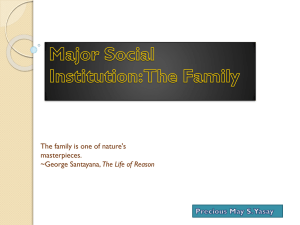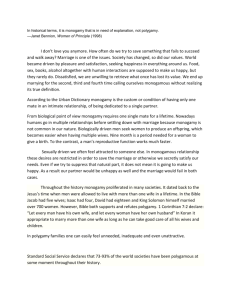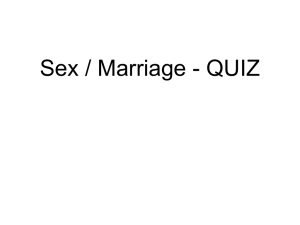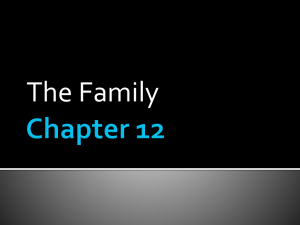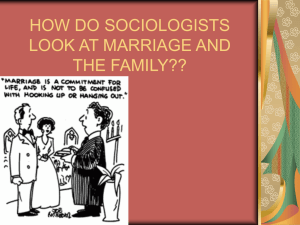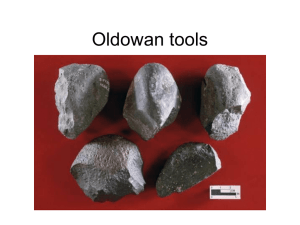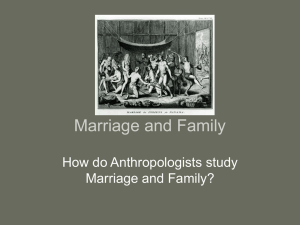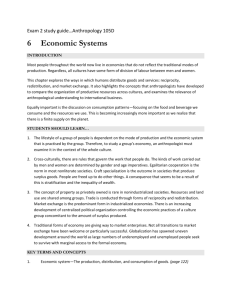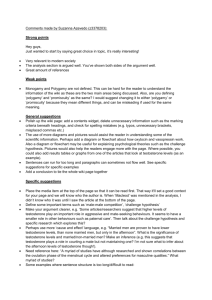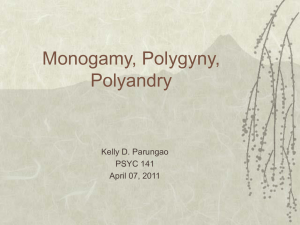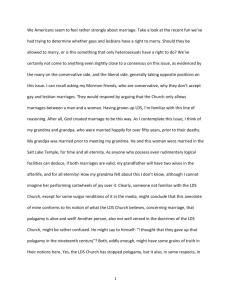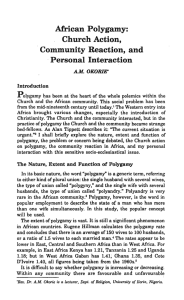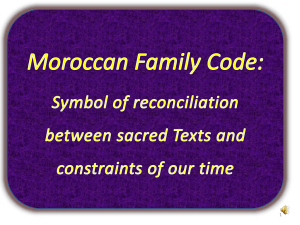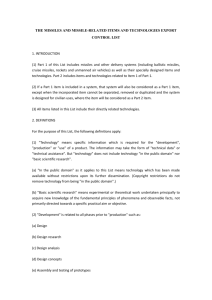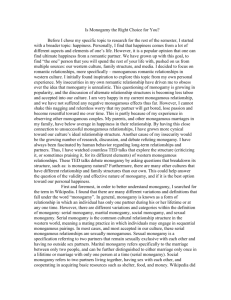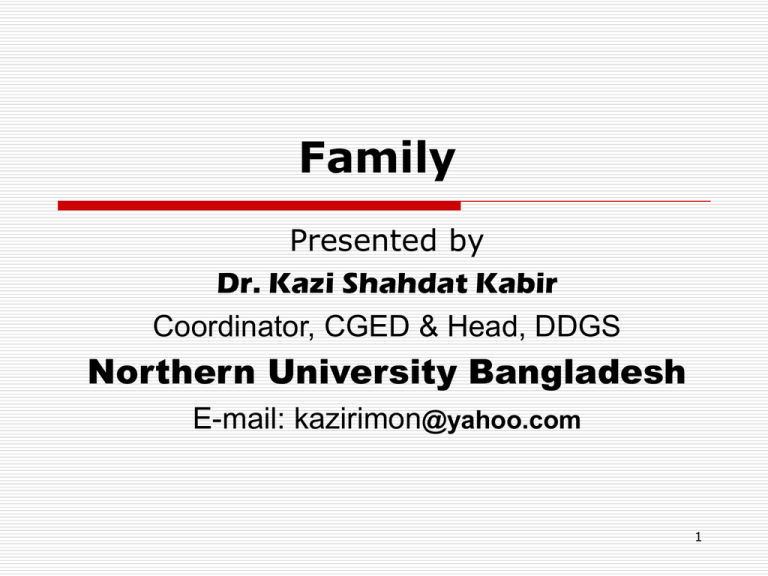
Family
Presented by
Dr. Kazi Shahdat Kabir
Coordinator, CGED & Head, DDGS
Northern University Bangladesh
E-mail: kazirimon@yahoo.com
1
Family: basic concept
Family is an universal institution that
ensure all the moments of happiness,
progress ,and it gives assurance of all
the development of human beings
sound mind and soul. Family also
helps each and every human beings
to reduce their disappointed ness,
distress and unhappiness.
2
Family: Basic Concept
Most of the civilized people want to
make and stay in family. But in the
present modern world, people of
some countries are practicing to
break down the concept of family.
Both male and female are living
together not making marriage.
3
Family: Basic Concept
Specially in so-called advanced
western (European and North
America) countries people are
likely to make free relationship.
These kinds of relationship are
breaking the norms , values, ethics
, morality of human being.
4
Family: Basic Concept
Amongst these kinds of people,
mentionably celebrity are usually
making this kind of unfair, unhealthy
relations. At the same time the forms
of making family all over the world
are not same. Some societies allow to
have more than one husbands or
wives.
5
Family: Basic Concept
The word family has been derived
from the Latin word “Famulous”
which means servant. In roman law
the word denotes a group of
producers and slaves and other
servants as well as members
connected by common descent or
marriage .
6
Family: Basic Concept
According to M.F. Nimkof – “Family is a
more or less durable association of
husband and wife with or without
children” .
MacIver – “Family is a group defined
by sex relationship sufficiently precise
and enduring to provide for the
procreation and upbringing of
children”.
7
Family: Basic Concept
Many people think of the family in very
narrow terms as a married couple and
their unmarried children living together.
A family also consider as- in which
relatives such as grandparents, aunts,
or uncles live in the same home.
8
Types of Family
Sociologists or anthropologists described family as
many types in many ways. such as1. From the size of family:
Sociologists and anthropologists denotes two types
of family from the view of its size.
a) Nuclear family- the term ‘nuclear family’ is well
chosen, since this type of serves as the nucleus, or
core, upon which larger family groups are built.
A married couple and their unmarried children
living together. The number of single parent
household increased nowadays.( industrialized
9
nations, western countries)
Types of Family
b) Extended family/ joint family- A family in
which relatives such as grandparents, aunts,
or uncles live in the same home as parents
and their children is known as an extended
family.
10
Types of Family
Advantage and disadvantage of two types
family: The structure of the extended family
offers certain advantage over that of nuclear
family. Crises such as death, divorce, and
illness out less strain on family members,
since there are more people who can provide
assistance and emotional support.
11
Types of Family
Problems like – lengthy process to take
decision ,damage individual initiative and
enterprise.
In nuclear family –it is possible to take
decision quickly , children get more
opportunity , more freedom, stable
satisfaction between all members.
But problems are like lonely feelings and
probably comes to wrong decision.
12
Types of Family
In addition, the extended family constitute
a large economic unit than the nuclear
family to share and help each and other. If
the family is engaged in a common
enterprise- a big farm or a small business –
the extend family members may represent
or can help from their own position and can
share together with the difference between
prosperity, development and also the
failure.
13
Types of Family
2. From the view of Marriage:
Family types considered from the view of Marriage as
two typesa) Monogamy family: The term ‘monogamy’ describes
a form of marriage in which one woman and one
man are married only to each other.
some observers describe it as a ‘serial
monogamy’, under serial monogamy a person
may have several spouses in his or her life but
only one spouse at a time.
14
About Family
Types of Family:
b) Polygamy: Some culture allow an individual to
have several husbands or wives simultaneously.
This form of marriage is known as Polygamy.
There are Two basic types of Polygamyi) Polygamy : Polygamy refers to the marriage of a
man to more than one woman at the same time.
The various wives are often sisters, who are
expected to hold similar values and have already
had experience sharing a household.
15
About Family
Types of Family
ii) Polyandry: the other principal variation of
polygamy is Polyandry, under which a woman can
have more than one husband at the same time.
This is the case in the culture of the today of
Southern India. These form of family can also be
shown specially in African region.
16
Types of Family
3. From Kinship / Relatives Patterns:
a) Bilateral descent: Bilateral descent which means
that both sides of a person’s family are regarded
as equally important.
No higher value is given to the brothers of one’s
father as opposed to the brothers of one’s
mother. In rural areas of Bangladesh , this form of
relationship are the common cases.
b)
17
Types of Family
Patrilineal Descent: It indicates that only the
father’s relatives are important in terms of
property, inheritance, and emotional ties. In
recent , the rural areas are giving the priority
of this relationship.
Matrilineal Descent: Conversely, in societies
that favor Matrilineal Descent, only the
mother’s relatives are significant.
18
Types of Family
4. From the Authority Patterns:
a) Patriarchy: If a society expects males to dominate
in all family decision making, it is termed a
Patriarchy. Specially the third world countries
people give the priority of this kind.
b) Matriarchy: in a ‘matriarchy’ women have greater
authority than men, specially in case of decision
making and also distribute the property on the
basis of matrilineal descent. This kind of example
are not available in this present world.
19
Functions of Family
There are six permanent functions performed by the
family ( according to W.F. Ogburn)
1. Reproduction
2. Protection
3. Socialization
4. Regulation of Sexual Behavior
5. Affection and Companionship
6. Providing of Social Status.
20
Functions of Family
Reproduction : Family is the only
legalized way or path to give birth or
reproduce children. To mentionable,
the societies which follow the norms,
values, ethics, or code of conduct
very strictly. Specially the Asian
societies try to follow this legalize
way of reproduction. But different
things are happening in the
industrialized , first world countries.
21
Functions
Protection: Only the family members
protects every and each affiliated
persons by willingly or unselfishly. But
things are different like developed
countries , that cases the various
kinds of state oriented organizations
protect its citizens by hook or by
crook.
22
Socialization
Family is the first and foremost places
to build up the process of
socialization. Members of any society
initially learn the basic form of
behavior from their society. Code of
conduct of any society like which
things society expect and which are
neglected, these are all achieved by
the family.
23
Socialization
And the forms like to maintain the
regulation the sexual behavior also
maintained by family. . But things are
different in the so called developed
countries.
24
Specially the developed countries , people
who have available money think-
Differently, like they maintain their
physical demand not making any kind
of formal relations. They never think
anything permanently. Hence
problems are arising like claiming the
fatherhood of any children.
25
Specially the developed countries , people
who have available money think-
The form of companionship always
perfectly delivered by the family. But
in the way of companionship are
shifted to many kinds of instrumental
things . Such as computer, face book,
games and others entertaining
segments.
26
Family & social status
Still all over the world, status of the
family are being ascribed upon the
children. In case of Bangladesh, the
status of parental are ascribing on
children. Like Sheikh family (Sheikh
Mujibur Rahman) are continuing to
bear the status of ruling party of
Bangladesh. And the Zia family also
contributing the status upon the
major opponent party B.N.P.
27
Family & social status
And also in 1st world country like U.S.A
Clinton status are continuing upon
Democratic party. Others are Gandhi
family in India , Ekuino family in
Philippines Bhutto family in Pakistan
etc are the lively example of this kind.
Conclusion: give your opinion.
28

